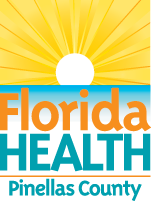It's a New Day in Public Health.
The Florida Department of Health works to protect, promote, and improve the health of all people in Florida through integrated state, county, and community efforts.
DOH-Pinellas Adopts Online System to Better Serve Mothers, Infants and Children
December 22, 2017

St. Petersburg, FL – Since its beginning in 1974, the Supplemental Nutrition Program for Women, Infants and Children (WIC) has earned the reputation of being one of the most successful Federally-funded supplemental nutrition programs in the country. The program has shown to be a cost-effective and beneficial approach to protecting and improving the health of low to moderate income women, infants and children.
Unfortunately, when it comes to replenishing a client’s benefits, clients aren’t as satisfied. That is changing thanks to a more user-friendly online system, wichealth.org. Clients can now complete their required nutrition education courses online and their Electronic Benefit Transfer (EBT) cards will be replenished automatically.
The WIC program provides no-cost nutrition counseling, education, and healthy supplemental foods for pregnant, breastfeeding and postpartum women, infants, and children younger than 5 years of age who are at nutrition risk. Breastfeeding promotion and support, referrals for health care, immunizations and community services are also integral parts of the program.
Most clients are determined to be low risk, which could mean they are underweight/overweight, their baby was born at a low birth weight or they have another nutrition-related need. Low risk clients are required to come in to one of five Florida Department of Health in Pinellas (DOH-Pinellas) centers four times a year.
This may not seem like a lot for someone who has access to reliable transportation but Danielle Watkins, Public Health Nutritionist Supervisor for DOH-Pinellas in Pinellas Park says, “It keeps clients from returning. They sometimes have to rely on relatives to get to their appointments and that’s not reliable either.”
Once a client goes through the initial certification process (determining their income eligibility and their nutrition risk) they automatically receive their EBT card and can use it immediately.
Three months later, they are required to complete interactive nutrition “contacts” or lessons with a WIC staff member to reload their cards. During these encounters, clients learn about different nutrition topics such as physical activity, how to save money at the store, food safety, etc., all while WIC personnel replenish their EBT card.
Each client must complete a certain amount of “contacts” a year depending on their nutrition risk. Somewhere along the way between the certification, recertification and the contact appointments, clients drop the program and discontinue their benefits because they are unable to make it back in to the office. Even with innovations like the DOH-Pinellas’ WIC Drive-Thru in Mid-County, the first and only one in the country, clients still have trouble getting to the centers for their follow-up appointments.
To combat the low return rate, more than 20 states currently use a Federally-approved program, wichealth.org. DOH-Pinellas’ WIC program was selected to be one of three counties to serve as the pilot programs for the Florida Department of Health to use the online system. Instead of coming in to the center for their three-month appointment, low risk clients with children 1-5 years of age now have the opportunity to take the lessons online and a WIC staff member will reload their EBT cards automatically. The best part: clients can complete the courses at their convenience using a computer, tablet or smartphone.
Low risk clients with children 1-5 years of age are the only clients allowed to reload their benefits using the online system. Clients with infants and clients who are high risk still need to come in to the office because their cases may require more attention than a low risk client.
Barbara Sarver, WIC and Nutrition Services Manager at the St. Petersburg Center, says even though low risk clients with children 1-5 years of age are eligible to reload their benefits using the online system, staff encourage all clients to sign up because of the resources available. “There are many topics to pick from and the system provides recipes and resources that all our clients could benefit from,” she says.
As of October 2017, DOH-Pinellas has 35 clients who are using the system. Within the next year, the online system will be available to all Florida Department of Health WIC programs and their clients.
As soon as a woman thinks she may be pregnant or know she is pregnant, she can start the process by referring to the WIC Income Guidelines and setting up a WIC certification appointment by calling 727-824-6900.
For information about WIC and DOH-Pinellas, go to www.PinellasHealth.com or follow us on Twitter @HealthyPinellas.
About the Florida Department of Health
The department, nationally accredited by the Public Health Accreditation Board, works to protect, promote and improve the health of all people in Florida through integrated state, county and community efforts.
Follow us on Twitter at @HealthyFla and on Facebook. For more information about the Florida Department of Health please visit www.FloridaHealth.gov.
For Media Inquiries
@HealthyPinellas
@HealthyFla





Connect with DOH